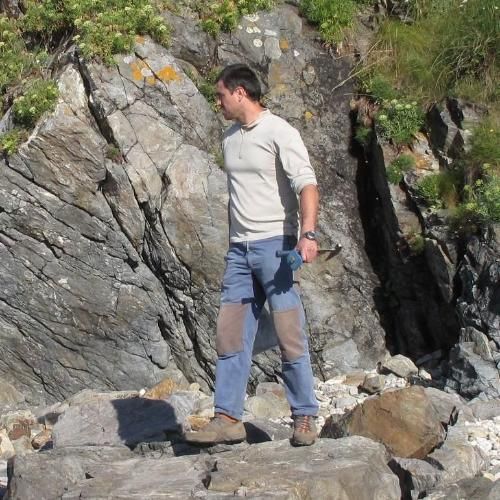
JOSÉ MANUEL
FUENLABRADA PÉREZ
Researcher to 2014
Faculty: Ciencias Geológicas
Research group: Dinámica y evolución del Cinturón Varisco europeo
Personal web: https://www.ucm.es/jmfuenlabrada/
Doctor by the Universidad Complutense de Madrid with the thesis Geoquímica de series metasedimentarias del Macizo Ibérico contexto dinámico de la transición Ediacarense-Cámbrico 2017. Supervised by Dr. Ricardo Arenas Martín, Dr. Sonia Sánchez Martínez, Dr. Carmen Galindo Francisco.
José Manuel Fuenlabrada has been holding since 1996 the position of Senior Technician at the Geochronology Facility (CAI de Ciencias de la Tierra y Arqueometría - Universidad Complutense de Madrid), performing functions of Technical and Quality manager of the laboratory. Currently, he is in charge of the Thermal Ionization Mass Spectrometers (TIMS) and the monitoring of the available analytical lines, giving service to projects and researchers worldwide. Research experience in Geochemistry and Nd-isotope Geochemistry of metasedimentary rocks, specially focused on deciphering the depositional context, and the provenance of Iberian siliciclastic rocks in the Ediacaran – Cambrian transition, and influenced to a greater or lesser extend by the Avalonian-Cadomian arc-system. This research has led to a paleoreconstruction model for the relative locations of the Iberian sedimentary basins along the peri-Gondwanan margin, improving the understanding of the coeval events to the sedimentation, in many cases overprinted by deformation of subsequent orogenic events (Variscan and/or Alpine). Significant results have been reached in order to compare the geochemical and Nd-isotope sources of correlative Iberian allochthonous or autochthonous terranes. The ongoing interest in future research is mainly focused on improving knowledge of the Sr-Nd isotope sources for the different terranes currently present in the sutures defined in the basement of western and central Europe, especially in the domains currently found in the Iberian Massif and especially for their use in paleo-reconstructions of the Gondwanan margin.







